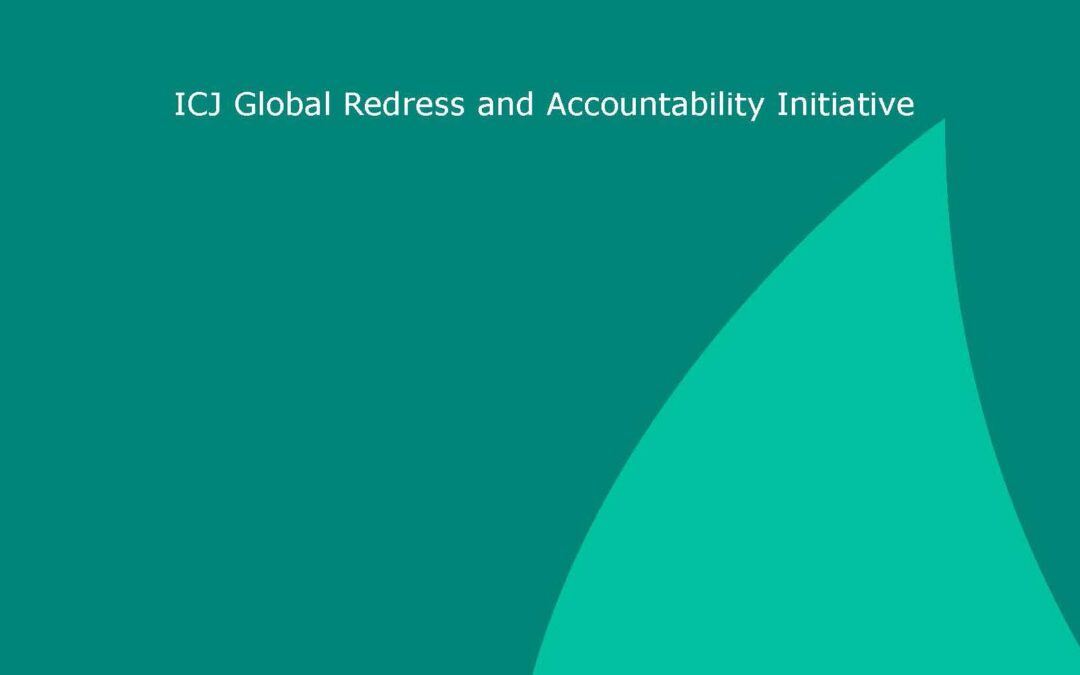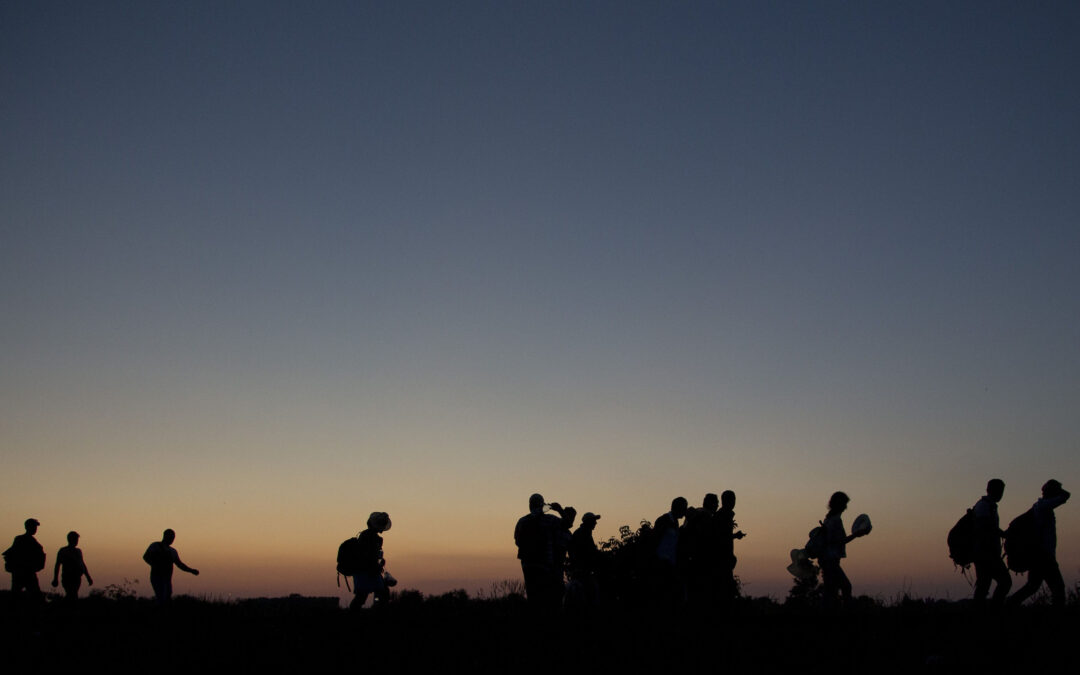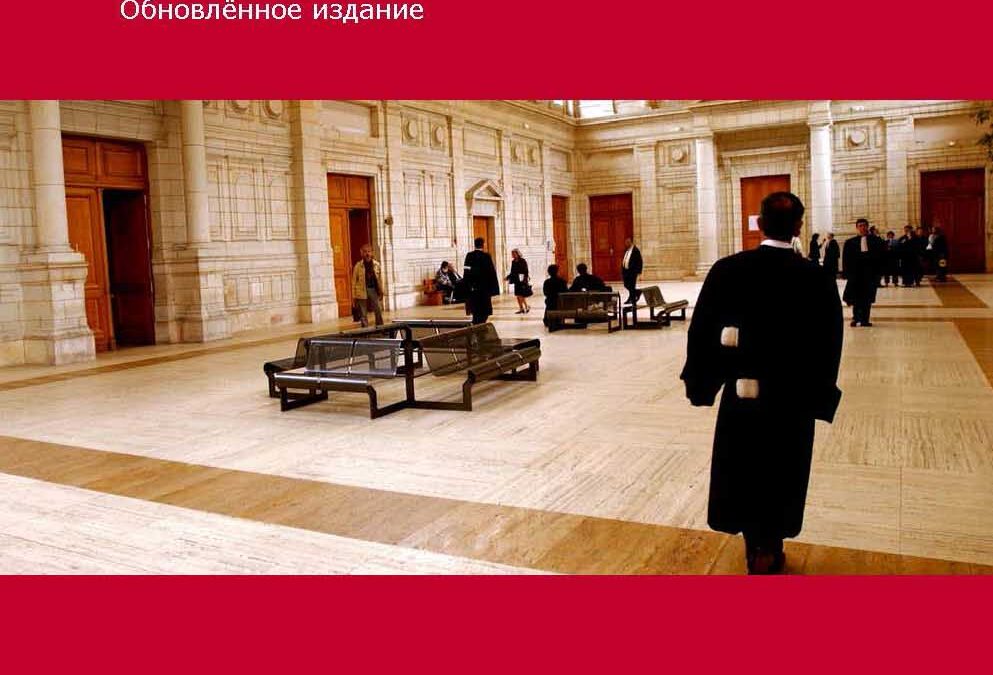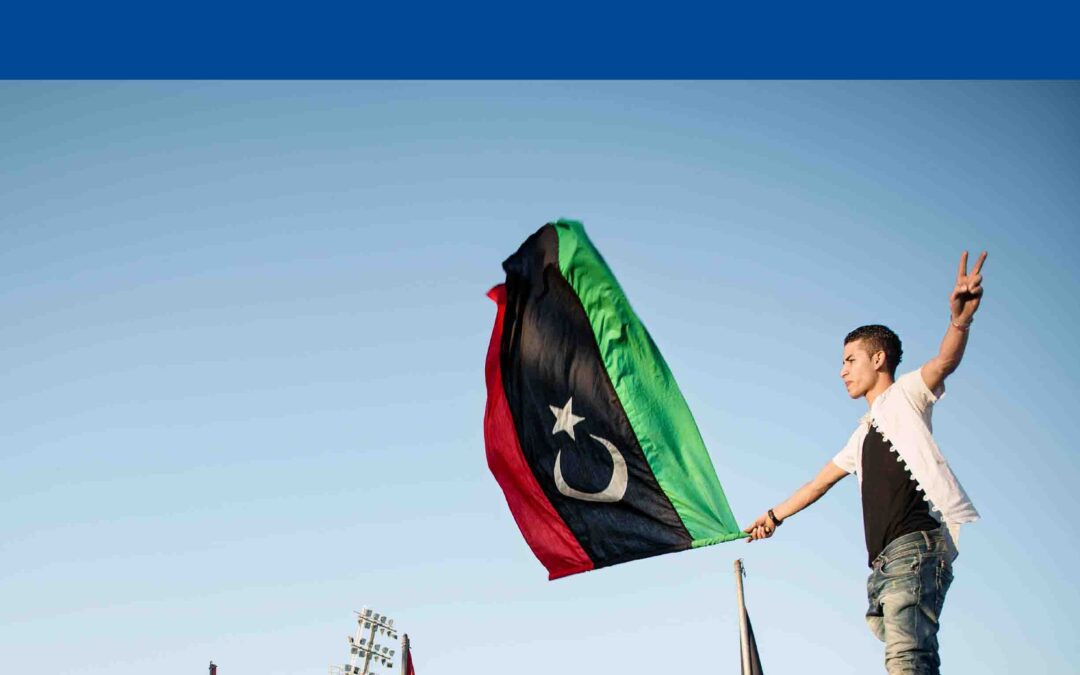
Aug 22, 2017 | News, Publications, Reports, Thematic reports, Video clips
The institutional political crisis in Venezuela has brought the rule of law to near collapse and severely obstructed accountability for those responsible for gross human rights violations, the ICJ concluded in a report released today.
The ICJ’s report Achieving Justice for Gross Human Rights Violations in Venezuela found that the authorities led by President Nicolás Maduro have undertaken a sustained campaign to take control of the Supreme Court of Justice and, with the Supreme Court’s support, suspend the constitutional powers of the former National Assembly and subvert efforts to hold the executive to account within a rule of law framework.
“Rule of law in Venezuela has been replaced by rule of arbitrary executive power,” said Alex Conte, ICJ’s Global Accountability coordinator.
“The Constitution is disregarded, the judiciary cannot exercise its independent function, and the separation of powers is non-existent,” he added.
The ICJ’s report concludes that the human rights situation in Venezuela has deteriorated rapidly in recent years, particularly since 2014.
Extrajudicial and arbitrary executions, the practices of torture and ill-treatment, arbitrary detention, the trial of civilians by military courts and the criminalization and prosecution of political and social dissent have only increased.
“The political context of extreme polarization and the breakdown of the rule of law, along with the judiciary’s lack of independence, have severely obstructed accountability for those responsible for gross human rights violations,” said Conte.
“Victims and their families are left without justice.”
This situation has been further exacerbated by the recent dismissal of Venezuela’s Attorney General, described by the ICJ as a politically motivated act that violates international standards and removes one of the last institutional checks on executive authority and destroys one of the few glimmers of hope for an end to impunity for human rights violations.
Also troubling is the establishment by the new Consituent National Assembly of a ‘Truth Commission’, which the ICJ fears will be a politically manipulated instrument aimed at entrenching impunity for the executive and, when combined with President Maduro’s declaration that legal immunity will be stripped from National Assembly members that have opposed him, a tool to silence Government opposition, rather than to help discharge Venezuela’s duty to promptly, independently and effectively investigate allegations of gross human rights violations.
“Venezuela’s situation of entrenched impunity cannot be resolved without the establishment of an independent judicial authority that can address human rights violations, deter further violations and help bring back the rule of law,” Conte added.
Contact:
Alex Conte, ICJ Global Redress and Accountability Initiative, t: +41 79 957 27 33; e: alex.conte(a)icj.org
Federico Andreu Guzman, ICJ Senior Legal Adviser, Americas, e: Federico.andreu(a)icj.org
Venezuela-GRA Baseline Study-Publications-Reports-Thematic reports-2017-ENG (full report, PDF)
Read also:
ICJ Position Paper on the Dismissal of the Attorney General of Venezuela (August 2017)
ICJ Report, Venezuela: The Sunset of the Rule of Law (October 2015)
ICJ Report, Strengthening the Rule of Law in Venezuela (November 2014)

May 5, 2017 | Advocacy, News, Publications
The ICJ has published a set of Principles on the Role of Judges and Lawyers in relation to Refugees and Migrants.
The Principles were developed by the ICJ on the basis of consultations with senior judges, lawyers, and legal scholars working in the field of international refugee and migration law (including at the 2016 Geneva Forum of Judges & Lawyers), as well consultations with States and other stakeholders on a draft version during the March 2017 Human Rights Council session, and other feedback.
The Principles seek to help judges and lawyers, as well as legislators and other government officials, better secure human rights and the rule of law in the context of large movements of refugees and migrants. They are intended to complement existing relevant legal and other international instruments, including the New York Declaration, as well as the Principles and practical guidance on the protection of the human rights of migrants in vulnerable situations within large and/or mixed movements being developed by the OHCHR.
The Principles address the role of judges and lawyers in relation to, among other aspects:
- determinations of entitlement to international protection;
- deprivation of liberty;
- removals;
- effective remedy and access to justice;
- independence, impartiality, and equality before the law;
- conflicts between national and international law.
The Principles, together with commentary, can be downloaded in PDF format by clicking here: ICJ Refugee Migrant Principles 2017.
They are also available in Spanish, French and Arabic.
The ICJ formally launched the published version of the Principles at a side event to the June 2017 session of the Human Rights Council (click here for details), where their importance and utility were recognised by the UN Special Rapporteur on the human rights of migrants, as well as representatives of UNHCR and the OHCHR.
The ICJ had earlier released the final text in connection with the Thematic Session on “Human rights of all migrants” for the UN General Assembly Preparatory Process for the Global Compact for Safe, Orderly and Regular Migration to be held in Geneva 8-9 May 2017, where in an oral statement the ICJ was able to highlight the potential utility of the Principles in the development of the Compact.
The ICJ further promoted consideration of the Principle, in an oral statement to the Human Rights Council.
More information about the process of development of the Principles, including the list of participants to the 2016 Geneva Forum, is available here.
The consultations, preparation and publication of the Principles was made possible with the financial support of the Genève Internationale office of the Republic and Canton of Geneva, for which the ICJ is grateful.
For further information, please contact ICJ Senior Legal Adviser Matt Pollard, matt.pollard(a)icj.org

Feb 27, 2017 | News, Publications, Reports, Thematic reports
The Government of Myanmar should impose a moratorium on the development of Special Economic Zones (SEZs) until it can ensure SEZs can be developed inline with international human rights laws and standards, said the ICJ at a report launch held today in Yangon.
The 88-page report, entitled Special Economic Zones in Myanmar and the State Duty to Protect Human rights, assesses the laws governing Myanmar’s SEZs and finds that the legal framework is not consistent with the State’s duty to protect human rights.
For example, a case study examining the Kyauk Phyu SEZ in Rakhine State shows that the land acquisition process initiated in early 2016 lacks transparency, does not comply with national laws on land acquisition, and risks violating the rights of 20,000 residents facing displacement.
“The SEZ Law undermines the protection of human rights, and critical legal procedures are often poorly implemented, so the Kyauk Phyu project risks repeating the rights violations that have been associated with SEZs in the past,” said Sam Zarifi, the ICJ’s Asia Director.
“The NLD-led Government can make a break from the past by ensuring economic development projects benefit Myanmar’s people, rather than rushing to facilitate projects which result in human rights violations and ultimately undermine sustainable development,” he added.
Myanmar’s legal framework for SEZs is based on the 2014 SEZ Law and incorporating national laws governing land, labour and the environment.
The report shows that while national laws require Environmental Impact Assessments and the application of international standards on involuntary resettlement, the SEZ Law does not establish clear accountabilities for the implementation of these procedures.
This has contributed to human rights violations and abuses in each of Myanmar’s three SEZs, the report says.
“It has been encouraging that government officials have emphasized their commitment to protecting human rights in SEZs in line with the rule of law,” said Sean Bain, the ICJ’s Legal Consultant in Myanmar and lead author of the report.
“The legal reforms recommended in this report will be critical to meet these commitments while fulfilling the State’s duty to protect human rights in SEZs. We also suggest that investors take heightened due diligence measures to ensure they are not complicit in rights violations,” he added.
The report was based on extensive legal research as well as interviews with over 100 people, from affected communities to investors and government officials, during 2016.
Key recommendations to the Government of Myanmar
- Protect human rights in Myanmar’s SEZs by amending the SEZ Law, through meaningful public consultation in accordance with international standards.
- Order a moratorium on the development of SEZs, and on entering related investment agreements, until the SEZ Law has been amended to ensure conformity with international human rights law and standards.
- Commission a Strategic Environmental Assessment for the Kyauk Phyu SEZ, in line with Myanmar’s environmental conservation laws. This would involve consultation to inform decision-making on the Kyauk Phyu SEZ and related projects, by identifying cumulative environmental and social impacts of all the developments in Kyauk Phyu, while considering conflict dynamics and economic development in Rakhine State.
- Suspend land acquisition in Kyauk Phyu until after the completion of a resettlement plan that is in line with international standards, as required in the EIA Procedure.
Contact
Sean Bain, ICJ Legal Consultant in Myanmar, t: +95 9263533230 ; e: sean.bain(a)icj.org
Myanmar-SEZ assessment-Publications-Reports-Thematic reports-2017-ENG (full report, in PDF)
Myanmar-SEZ assessment SUMMARY-Publications-Reports-Thematic reports-2017-ENG (executive summary of the report, in PDF)
Myanmar-SEZ assessment full-Publications-Reports-Thematic reports-2017-BUR (Burmese version of full report, in PDF)
Myanmar-SEZ assessment-Publications-Reports-Thematic reports-2017-BUR (Burmese version of the executive summary, in PDF)

Feb 24, 2017 | News, Publications, Reports, Thematic reports
The Indian authorities must end discrimination against people based on sexual orientation and gender identity in the formal justice system, the ICJ said in a report released today.
The 60-paged report “Unnatural Offences”: Obstacles to Justice in India Based on Sexual Orientation and Gender Identity documents the challenges queer persons in India face while trying to access justice, starting from the impact of laws that criminalize people for their real or imputed sexual orientation and gender identity; to police harassment, violence and abuse; and to discrimination and other hurdles within the justice system.
Based on 150 interviews across nine cities in India, including with people who identified as lesbian, gay, bisexual, and transgender, the report uses the term “queer” to refer to any individual who identifies with a non-normative sexuality or gender identity.
It includes individuals who identify as lesbian, gay, bisexual, transgender, intersex and gender-queer, and also encompasses persons who may not fit into any of these identity categories.
“Criminalization, police violence, and the prejudiced attitudes of officials in the courts’ system have a profoundly detrimental impact on the ability and willingness of queer persons to resort to legal avenues to obtain justice,” said Sam Zarifi, ICJ’s Asia Director.
“The systemic discrimination and violence faced by queer persons in India, and the challenges they face accessing justice, are clearly contrary to India’s international human rights law obligations and the Indian Constitution,” he added.
The report also draws on responses from various government departments to ICJ’s requests under the Right to Information Act, both on the enforcement of the law against queer individuals and on gauging how legal entitlements have operated.
It describes how:
- Laws like Section 377 of the IPC and some other broad and vaguely formulated laws, such as those that criminalize sex work and begging, are used by the police to persecute people based on their real or imputed sexual orientation and gender identity, and inhibit queer persons from accessing justice.
- Even where the law purportedly provides legal entitlements and protections, queer persons continue to face a range of difficulties in accessing them.
- Police violence, abuse and harassment are one of the biggest barriers to queer persons’ access to the justice system in India.
- The challenges that lawyers who argue cases involving the human rights of queer persons combine with the biases of officials in the formal justice system compounding the difficulties queer persons face in obtaining justice.
“The inspiring work of activists and human rights lawyers in India has led to positive judicial decisions showing the potential of the law to affirm human rights and ensure justice for all persons, irrespective of their sexual orientation or gender identity,” Zarifi said.
“Indian authorities should build on this momentum and take immediate steps to end the discrimination and violence queer persons face,” he added.
The ICJ report makes a number of recommendations to Indian authorities, which include:
- Ensure that police officers promptly register and investigate any complaint regarding violence or any other criminal act filed by a queer person and/or on their behalf;
- Provide legal and sensitization training relating to sexual orientation and gender identity to lawyers and judges under the State and District Legal Services Authority along with outreach programmes to facilitate queer individuals’ access to the justice system;
- Repeal section 377 of the Indian Penal Code and vaguely worded criminal laws that invite discriminatory application, or substantially revise them to ensure there is no scope for abuse in their enforcement;
- Withdraw the Transgender Persons (Protection of Rights) Bill 2016 as currently drafted, engage in meaningful and substantial public consultation with members of the transgender community; and ensure that any process introduced for the legal recognition of gender identity is consistent with international human rights law and the NALSA.
Contact
Sam Zarifi (Bangkok), ICJ Asia Pacific Regional Director, t: +66 807819002; e: sam.zarifi(a)icj.org
Ajita Banerjie, ICJ Consultant in Delhi, t: +91 9920995526 ; e: ajita.banerjie@icj.org
Additional information
The Indian authorities have an obligation to respect, protect and fulfill the rights to equality before the law, equal protection of the law and freedom from discrimination; the rights to privacy, liberty and security of the person, including the right not to be subjected to arbitrary arrest and detention; the right to life, to freedom from torture and other ill-treatment; and the right to access justice and to an effective remedy, for all persons, including queer people, without discrimination as to their real or imputed sexual orientation and gender identity.
As the Supreme Court of India has reaffirmed, the Indian Constitution also guarantees several of these rights.
For example, in the seminal case of NALSA v UOI, the Court affirmed transgender persons’ right to their self-identified gender identity, based on the rights to equality, non-discrimination, freedom of expression and dignity.
India-SOGI report-Publications-Reports-Thematic report-2017-ENG (full report in PDF)

Oct 13, 2016 | News, Publications
The ICJ published today a Russian translation of its Practitioners Guide no. 6 on Migration and International Human Rights Law.
This updated edition of the Practitioners Guide analyses the protection afforded to migrants by international law and the means to implement it at national and international levels.
The ICJ Guide synthesizes and clarifies international standards on key issues, in particular:
- the rights and procedures connected to the way migrants enter a country and their status in the country of destination;
- human rights and refugee law constraints on expulsion;
- the human rights and refugee law rights linked to expulsion procedures;
- the rights and guarantees for administrative detention of migrants;
- rights connected to work and labour; and
- rights to education, to the highest attainable standard of health, to adequate housing, to water, to food, and to social security.
universal-pg-6-migration-publications-practitionners-guides-series-2016-rus (full guide in Russian, PDF)

Dec 17, 2015 | News, Publications, Reports
With the signing of the political agreement on a national unity government today, the next step in Libya’s transition will be to ensure that its new Constitution fully conforms to international rule of law and human rights standards, the ICJ said today.
The statement came as the ICJ released its new report The Draft Libyan Constitution: Procedural Deficiencies, Substantive Flaws.
In the report, the ICJ calls on the Libyan Constitution Drafting Assembly (CDA) to substantially revise the Draft Constitution published in October with a view to ensuring its full compliance with Libya’s obligations under international human rights law and international standards.
Libyan authorities, including the CDA, should also put in place effective mechanisms to ensure that the drafting process is inclusive, participatory, and fully reflects the views of a broad range of stakeholders, including civil society and minority groups.
The report concludes that the Draft Constitution, in many key respects, does not conform to Libya’s obligations under international human rights law or to international rule of law standards.
“The new Constitution provides a crucial opportunity to depart from decades of authoritarianism under Moammar Ghadafi’s regime. It must therefore provide for a strong foundation upon which the rule of law, including the separation of powers, the independence of the judiciary and civilian oversight over military and armed groups, can be established and upheld,” said Said Benarbia, Director of the ICJ MENA programme.
The Draft Constitution should also be amended to provide for a comprehensive set of human rights and protections that fully accord with international human rights law, including provisions relating to non-discrimination, the right to life, the right to liberty and security, the prohibition on torture and other cruel, inhuman or degrading treatment or punishment, protections for minorities, the right to freedom of thought, conscience and religion, fair trial rights, and a range of economic, social and cultural rights.
“The Libyan Constitution must at a minimum conform to the definition and scope of the rights contained within the human rights treaties to which Libya is a state party. Any scope for limitation of rights must conform to the criteria for such limitations under international law and, in particular, only as are provided for by law, are proportionate, and are demonstrably necessary in a free and democratic society,” Benarbia added.
Contact:
Doireann Ansbro, Associate Legal Advisor of the ICJ Middle East and North Africa Programme, tel: +216 71 841 701, email: doireann.ansbro(a)icj.org
Libya-Draft Constitution Flaws Deficiencies-Publications-Reports-2015-ENG (full report in PDF, English)
Libya-Constitution Flaws Report-News-Press releases-2015-ARA (full press release in Arabic, PDF)
Libya-Draft Constitution Flaws Deficiencies-Publications-Reports-2015-ARA (full report in PDF, Arabic)










